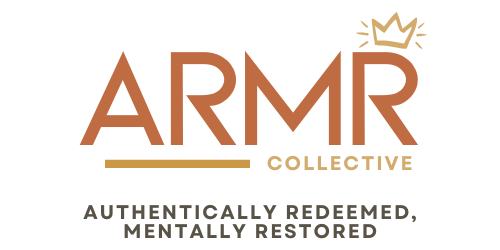Idolatry sounds like an old-timey idea that we don’t experience anymore. After all, who has a golden calf chilling on their living room mantle? But modern idolatry is more than that. Anything can become an idol as soon as it’s placed even half an inch above God. Even religion can become an idol. Even your kids can become your idol.
Idolatry is defined as the worship of idols, images, or anything other than God. In its original context, it referred to bowing down to physical statues or objects, treating them as divine. But in today’s modern day, the definition of idolatry has expanded. Now, idolatry occurs when anything becomes more important to us than God.
We practice idolatry when we start finding our identity, security, or meaning in anything other than our relationship with Him.
This can be a slippery slope then. Literally anything can become an idol. Here are some common categories of modern idolatry:
When Success Becomes Your Salvation: External Validation & Achievement
Let’s say you got a job you really wanted. Your hard work finally paid off and you got the position you wanted. You started out with wanting to do well at work, with a healthy ambition. But somewhere along the way, your worth became tied to your performance reviews. Maybe now you work through vacations and weekends, check emails late at night, and have panic attacks when things don’t go perfectly. Your social media feeds are curated to showcase how successful you are, but you refresh it obsessively, counting likes as votes for your value as a person. What began as wanting to succeed and do a good job became needing to be seen as successful.
Does this hit a little too close to home? External validation and achievement can easily become an idol in today’s society. Modern idolatry can be more subtle than we think. This encompasses personal success, social media, and others’ perception of you. In our achievement-obsessed culture, it’s incredibly easy to slip into this mindset. We start measuring our worth by our productivity, our social media engagement, and whether others perceive us as having it all together.
But God sees you and the value you bring.
When Safety Becomes Slavery: Security & Control
Maybe you tell yourself you’re just being responsible with money, and you are! But when the stock market dips, you can’t sleep. When your friends suggest a spontaneous weekend getaway, your first thought is the budget, not the adventure. You created a fortress of financial security and perfectly controlled routines, but now you’re trapped inside them. Your family walks on eggshells around your need for everything to go according to plan.
The security you craved became a prison.
Trust me, I understand financial stress and how important financial responsibility is. Financial stress is real and can literally make you sick with worry.
But when our need for control starts consuming our peace and affecting our relationships, we have to ask ourselves: Am I finding my security in my bank account or in who God says He is?
As Jesus reminds us in Matthew 6:26, “Look at the birds of the air; they do not sow or reap or store away in barns, and yet your heavenly Father feeds them. Are you not much more valuable than they?”
When Faith Becomes Performance: Identity & Belonging
Maybe you’ve found your church community after years of feeling lost. Maybe you throw yourself into serving, Bible study, and theological discussions. But gradually, you begin to measure your faith by your religious activity. Missing a church event brought guilt and shame. Disagreeing with your pastor brought more shame. You can quote Scripture fluently without a problem, but maybe you feel spiritually empty. Your relationship with God became about performing faith rather than experiencing Grace.
The good ol’ Christian Checklist. It gets us all. Go to church, check. Tithe, check. Be nice to people, check. Yup, I’m a good Christian. Faith without works is dead, but faith without relationship is just religious busy work (and is also dead). Religion and political beliefs can certainly become an idol if we put all our meaning in the religious acts and not in our relationship with Christ.
When religion itself becomes the object of worship instead of God or when we begin to expect salvation through political systems, we begin practicing idolatry probably without noticing it.
When Little Loves Become Ultimate Loves: Parenting
You’ve dreamed of being a parent since you were little. You knew someday you’d have children of your own, and it was your life goal to be a parent. Finally the day comes when you have a beautiful baby. You’d do anything for them. You wake up with them every two hours at first, shower them with love and affection, tend to their needs. But somewhere along the exhausting, wonderful journey, you left your spouse in the dust. Everything became about the kids—their feelings, their schedule, their needs. Your poor spouse became an afterthought. The biblical order of God, spouse, then kids somehow got completely flipped.
This sounds familiar to me, because it was me. I’m literally describing my own experience. And I still have to fight it. I was so obsessed with being a good mom that I started neglecting everything else around me, including my marriage. It’s so easy to get caught up in the comparison trap with parenting and putting your kids first in everything. I know maintaining the God-spouse-kids priority order is easier said than done, as I have to fight everyday to not let the kids slide up on the list.
Warning Signs of Modern Idolatry: Red Flags to Watch For
So how can we quickly identify modern idolatry and put a stop to it? Here are some warning signs that you may be slipping into an idolatry mindset:
What do you think about most often? In my case, I obsessed about the kids constantly. What are they going to wear? What are they going to eat? Are they developing at a “normal” rate? It was exhausting.
What do you spend your resources on? What do you spend the most time, money, and energy on? Your calendar and bank statements don’t lie when it comes to your real priorities.
What triggers your most extreme emotional reactions? Do you become enraged when your sports team loses? Do you spiral into despair when a project at work doesn’t go perfectly? I’m not talking about anxiety disorders or panic attacks here—those are real medical conditions. I’m talking about those moments when we surprise ourselves with how devastated we feel about something, revealing what we’ve made too important.
What do you sacrifice other important things for? When we’re willing to damage our emotional, spiritual, or physical health for something else, that’s a red flag.
Where do you find your identity? This was huge for me. After becoming a mom, I completely lost myself. I had to step back and remember who I am first and foremost: a beloved daughter of God.
What do you turn to for security and happiness? When you’re stressed, what’s your go-to? Shopping? Food? Scrolling social media? While these things aren’t inherently bad, notice what you reflexively reach for when life feels overwhelming. The relief we’ll feel is always temporary—it never actually fills the deeper need.
When do you become more concerned with being right than being loving? This is especially true for religious and political idols. Are we more concerned with winning arguments? Are we willing to tear others down in the name of being right? Maybe we should take a beat and remember we need to show Christ’s love to others.
The Heartbreak of Hollow Worship: The Spiritual Impact of Modern Idolatry
The reality of idols is they will ultimately disappoint us. No amount of money, external validation, religious practices, or perfect parenting will fill the God-shaped hole in our hearts.
Idols can’t deliver what God has to offer—peace that transcends all understanding.
The cruel irony is that idols demand everything of us but provide little lasting value. We increase our devotion to the idols but are left with diminishing returns. We pour more and more energy into them only to end up spiritually empty despite the external success. And with religious idolatry, we might believe we’re close to God because we’re checking all the things off the Christian checklist. But in reality, we’re miles away from Him.
Freedom from False Gods: Breaking Free From Modern Idolatry
So how do we escape? We first need to examine ourselves and take an honest inventory. What am I allowing to take the first spot on my priority list? What am I allowing to take the place of God? What am I putting my worth in? It can be a hard reality check. It’s okay to feel convicted, to feel that little spotlight from Heaven. Knowing is half the battle.
Idols can leave us feeling entitled. We should then practice gratitude and take stock on all our blessings that God has allowed us to have. Instead of worshipping our payday, we need to reorient the worship toward God.
This isn’t to say, we aren’t allowed to enjoy physical things. We can find a healthy enjoyment of good things without ultimate devotion. Everything in moderation. As long as God stays on top of the totem pole of your life, you can enjoy all it has to offer.
Set intentional limitations and maybe even fast from your idols. Do you find yourself gaming all day? Set a timer for yourself. We’ve started only gaming on the weekends to help combat an idol of instant gratification.
If religious works have made it to the top of your priority list, sit down and try to distinguish between genuine faith and religious performance. What is your heart position? Do you tithe to honor God or to look good to other people?
When any aspect of WHO we are becomes more important than WHOSE we are, we lose sight of the unshakeable foundation that defines us.
We are God’s beloved children, chosen and cherished regardless of our performance, achievements, or any other earthly identifier.
Our worth comes from being loved by God, not from anything we do or any label we carry.
The Beautiful Paradox: The Freedom of Right Worship
Here’s where it gets beautifully paradoxical.
When we engage in right worship (putting God first), we actually become more free to enjoy everything else in healthy ways.
It seems counterintuitive, I know. It seems like putting God first means you become some stuffy, rigid Christian who isn’t allowed to have any fun. But it’s actually the opposite.
With career and success, when your identity is in being God’s beloved child, you can enjoy career success without being enslaved to it. Your mood no longer depends on every review, and you can take risks because your worth is no longer tied to outcomes. Failure becomes disappointment and not an identity crisis.
In relationships and parenting, you can love people freely without needing them to complete you because God is your primary source of love and validation. You stop putting impossible pressure on your family to make you happy. You can set healthy boundaries because you’re secure in God’s love. Conflict then becomes about the issue itself and not your worth as a person.
Parenthood becomes a ministry rather than your sole identity. When God is first, you can love your children well without making them your whole world. You model a healthy relationship with God, you prioritize your marriage (which gives them security), and you take care of yourself so you can parent from a full cup rather than empty reserves. Your children get a parent who loves them deeply but doesn’t need them to be perfect to maintain their own sense of worth.
With money and security, you start trusting God as your ultimate provider. You can be wise with money without being controlled by it. You can be generous because your security is in the Lord, not your bank account. You can enjoy nice things without needing them for status. Financial setbacks become problems to solve, not threats to your identity.
The beautiful truth? Right worship doesn’t take away good things. It frees you to enjoy them properly.
When God is in His rightful place, everything else can fall into its proper place too.
Grace for the Journey: Moving Forward
If you’ve identified an idol in your life while reading this, don’t beat yourself up. Recognition is actually a victory, not a failure. It’s much better to see clearly than to be stumbling around in spiritual blindness.
Freedom from modern idolatry is a process, not an instant transformation. Like I said before, I have to stay vigilant that I don’t put my kids above everything else. I catch myself slipping back into old patterns every now and again.
But what matters most is that you identify the idols and work on putting God back in His rightful place.
The joy that comes with worshipping the only One worthy of ultimate devotion is unfathomable compared to anything here on earth. True faith liberates while idolatry (even religious idolatry) enslaves. If we have God in His rightful place as number one, above all, we can enjoy all life has to offer in moderation, without our core identities tied to them.
That’s the freedom Christ died to give us. And that’s the abundant life He’s calling us into.
Wrestling with idolatry is messy, ongoing work. If you’re feeling convicted (or maybe a little defensive) after reading this, that’s normal—I felt the same way when I first recognized my own idols. What’s God highlighting in your heart right now? Share anonymously in the comments if you feel comfortable—we’re all figuring this out together.



